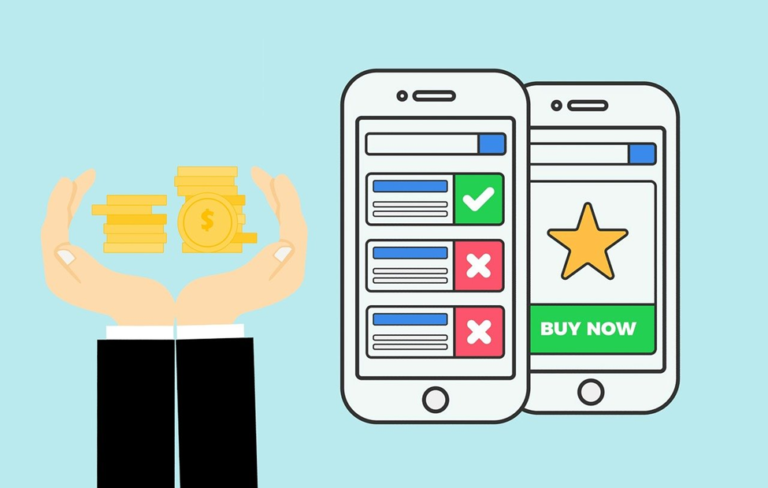How Solar Panel Installation Can Save You Money and Energy?
In recent years, solar energy has gained popularity as an eco-friendly and cost-effective alternative to traditional energy sources. Solar panels, once considered a luxury for the environmentally conscious, are now becoming a practical solution for homeowners looking to reduce their energy bills and carbon footprint. Solar panel installation can save you money and energy in numerous ways, from reducing your monthly electricity costs to increasing the value of your property. This article will explore the financial and environmental benefits of solar panel installation, how it works, and what you need to consider before making the switch.
Understanding Solar Panel Installation
1. What is Solar Panel Installation?
Solar panel installation involves placing photovoltaic (PV) panels on the roof or property of a building to harness the sun’s energy. These panels convert sunlight into electricity, which can then be used to power your home or business. Solar panel systems typically include the following components:
- Solar Panels (Photovoltaic Cells): These panels capture sunlight and convert it into electricity.
- Inverter: The inverter converts the direct current (DC) electricity produced by the solar panels into alternating current (AC) electricity, which is used in homes and businesses.
- Battery Storage (Optional): Some systems include batteries that store excess electricity produced during the day for use at night or on cloudy days.
- Electrical Metering System: A system to measure the energy produced by the solar panels and monitor how much energy is being used or sent back to the grid.
A professionally installed solar panel system will be tailored to your home’s energy needs, geographic location, and budget.
2. How Solar Panels Work
Solar panels generate electricity through the photovoltaic effect. When sunlight hits the solar cells in the panels, it excites electrons, creating an electric current. This current is then captured and sent to an inverter, which converts it into usable AC electricity. If your system produces more energy than you consume, excess electricity can be fed back into the grid, often resulting in credit on your energy bill (a process called net metering).
Solar panels are most effective when they are positioned to receive direct sunlight, which is why they are typically installed on roofs with a good southern or western exposure. However, solar panel systems can still work in areas with partial sun or even cloudy weather, although they may not be as efficient in such conditions.
Financial Savings from Solar Panel Installation
1. Reducing Your Electricity Bills
One of the most significant financial benefits of installing solar panels is the reduction in your monthly electricity bill. By generating your own power, you can rely less on the grid and reduce the amount of electricity you need to purchase from your utility provider.
- Energy Self-Sufficiency: If your solar system produces enough electricity to cover your household’s energy needs, your electricity bill could be reduced to zero. In many cases, homes with solar panels still have to pay a small monthly fee to their utility provider for access to the grid (even though they use little to no energy from it).
- Net Metering: In areas where net metering is available, excess energy produced by your solar panels can be sent back to the grid, and you may receive credits that offset the energy you use at night or during cloudy days when your panels aren’t generating as much electricity. This can further reduce your electricity costs.
- Time-of-Use Plans: Many utility companies now offer time-of-use pricing, where electricity rates vary based on the time of day. If you have solar panels, you can generate power during the day when the sun is shining and use it to avoid paying high rates during peak hours in the evening.
2. Reducing Energy Costs Over Time
While solar panel installation requires an initial investment, the long-term savings on your energy bills can be substantial. Solar panels typically last for 25 to 30 years, with warranties covering much of that period. As you produce your own energy, you protect yourself from rising energy prices. Electricity rates tend to increase over time due to inflation, fuel price fluctuations, and the cost of maintaining the power grid. By installing solar panels, you lock in a more predictable and lower cost for your energy needs.
3. Increase in Property Value
Homeowners who install solar panels often see an increase in the value of their property. A study by the U.S. Department of Energy found that homes with solar panels sell for about 4% more than comparable homes without solar energy systems. This increase in property value is partly because prospective buyers recognize the long-term savings on energy bills, as well as the added benefit of eco-friendly energy solutions.
Moreover, solar energy systems are often viewed as an attractive feature, especially for environmentally conscious buyers. In areas where energy costs are high or the grid is unreliable, solar panels can be particularly appealing.
4. Incentives and Tax Credits
In many regions, governments offer incentives to encourage homeowners to install solar panels. These incentives can significantly reduce the upfront cost of the system, making solar energy more accessible to a broader range of people.
- Federal Solar Tax Credit (Investment Tax Credit – ITC): In the United States, homeowners who install solar systems can qualify for the federal solar tax credit, which covers 30% of the installation cost. This credit can be claimed on your income taxes and reduces the overall financial burden of installing solar panels.
- State and Local Incentives: Many states, cities, and utility companies offer additional incentives, such as rebates, tax credits, or performance-based incentives, to make solar installation more affordable. These incentives can vary greatly depending on your location.
- Property Tax Exemptions: Some areas offer property tax exemptions for homes with solar panel installations, meaning the increase in your property value due to the solar system won’t result in a higher tax assessment.
5. Solar Financing Options
The cost of installing solar panels has come down significantly in recent years, and various financing options are available to help homeowners afford the upfront investment. These options include:
- Solar Loans: Many financial institutions offer loans specifically for solar panel installation. These loans can be paid off over time, allowing you to enjoy immediate savings on your energy bills while paying off the system in manageable installments.
- Solar Leases and Power Purchase Agreements (PPAs): In these arrangements, a third party installs and owns the solar system on your roof, and you pay a monthly fee or buy the electricity generated at a fixed rate. This can allow you to enjoy the benefits of solar power without the upfront costs, though you won’t own the system or be eligible for tax credits.
Energy Efficiency and Environmental Benefits
1. Reduce Your Carbon Footprint
Solar energy is a clean, renewable resource that can drastically reduce your carbon footprint. Unlike fossil fuels, which release harmful emissions into the atmosphere, solar panels produce zero emissions while generating electricity. By switching to solar energy, you contribute to reducing the environmental impact of traditional energy generation methods.
- Lower Greenhouse Gas Emissions: The average U.S. household emits about 7.5 metric tons of carbon dioxide (CO2) each year by using electricity from the grid. By generating clean energy with solar panels, you can reduce your household’s CO2 emissions and help combat climate change.
- Sustainable Energy Source: Solar energy is inexhaustible, meaning it will never run out. Unlike coal, oil, or natural gas, the sun’s energy is available every day, making it a reliable and sustainable energy source for the long term.
2. Solar Panels and Energy Efficiency
Installing solar panels is not just about generating clean energy—it also encourages more energy-efficient practices. Homeowners with solar panels tend to be more conscious of their energy use and may take steps to reduce overall consumption by:
- Improving insulation and energy-efficient windows to minimize heating and cooling needs.
- Switching to energy-efficient appliances and LED lighting.
- Monitoring energy usage and adjusting habits to maximize the use of solar-generated electricity.
These energy-efficient habits can further reduce your energy bills and increase the overall savings you get from your solar panel system.
3. Solar Energy Reduces Reliance on Non-Renewable Resources
By installing solar panels, you are helping to decrease the demand for electricity generated by non-renewable resources, such as coal and natural gas. These resources are finite, and as they become scarcer, they are likely to become more expensive to extract and use. By investing in solar energy, you are contributing to the transition towards cleaner, more sustainable energy sources, reducing your reliance on fossil fuels, and supporting the growth of renewable energy industries.
Things to Consider Before Solar Panel Installation
While the benefits of solar panel installation are clear, it’s important to take several factors into consideration before making the investment:
- Roof Condition and Orientation: The effectiveness of your solar system depends on how much sunlight your roof receives. Homes with a roof facing south or west typically get the most sun exposure. Additionally, your roof should be in good condition, as solar panels last for decades and may require re-roofing before installation.
- Upfront Costs and Financing: Solar panel systems require an upfront investment, though incentives, tax credits, and financing options can help offset this cost. Make sure to explore all available options to determine the most cost-effective solution for your home.
- Energy Usage: Consider your household’s energy consumption when determining the size of the solar system. A professional installer can help assess your needs and recommend the right system for your home.
- Maintenance: While solar panels require little maintenance, it’s essential to keep them clean and periodically check the system to ensure optimal performance.
Conclusion
Solar panel installation offers significant savings on energy costs, long-term financial benefits, and a positive environmental impact. By generating your own electricity, you can reduce your reliance on the grid, decrease your carbon footprint, and protect yourself from rising energy prices. In addition to saving money, solar panels can increase the value of your home, provide energy independence, and contribute to a cleaner, more sustainable future. With various incentives, financing options, and advancements in solar technology, there has never been a better time to make the switch to solar energy.







